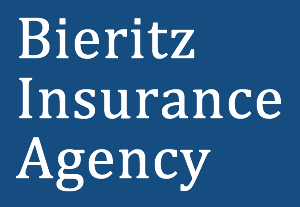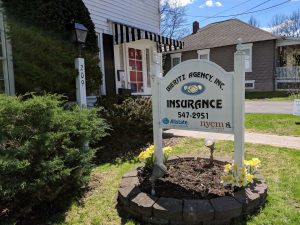Building Your Future: The What, Why, and How of Personal Pension Plans for Business Owners
As a business owner, your focus is often on the present — managing operations, growing your enterprise, and ensuring its success. However, planning for your future is equally crucial, and a key aspect of that planning is developing a Personal Pension Plan (PPP). In this article, we’ll explore what a Personal Pension Plan is, why business owners should consider having one, and provide a step-by-step guide on how to develop a robust PPP.
What is a Personal Pension Plan (PPP)?
A Personal Pension Plan (PPP) is a retirement savings strategy designed specifically for business owners who want to supplement their traditional retirement savings. Unlike conventional retirement plans such as 401(k)s or IRAs, a PPP provides more flexibility and control, allowing business owners to tailor their retirement savings to their unique financial situations and goals.
Why Consider a Personal Pension Plan?
Flexibility and Control: One of the primary reasons business owners opt for a PPP is the flexibility it offers. Unlike traditional retirement plans with contribution limits, a PPP allows for greater flexibility in determining contribution amounts. Business owners can adjust their contributions based on the financial performance of their businesses, providing adaptability during both prosperous and challenging times.
Tax Advantages: PPPs offer tax advantages that can significantly benefit business owners. Contributions to a PPP are tax-deductible, reducing the taxable income for the business. Additionally, the earnings on the PPP investments grow tax-deferred until withdrawals are made during retirement, potentially resulting in lower overall tax liabilities.
Wealth Accumulation: A well-structured PPP can facilitate accelerated wealth accumulation. By consistently contributing to the plan and strategically investing its assets, business owners can build a substantial nest egg for retirement. This wealth accumulation can provide financial security and support the lifestyle they envision during their post-work years.
Asset Protection: PPPs often come with creditor protection features, safeguarding retirement assets from business-related or personal liabilities. This protection can be crucial for business owners, especially in industries prone to legal challenges or economic downturns.
Succession Planning: Integrating a PPP into your overall financial strategy can enhance succession planning. It provides a structured method for transferring wealth to family members or successors, ensuring the continuity of the business and securing the financial future of the next generation.
How to Develop a Personal Pension Plan:
Step 1: Assess Your Financial Situation and Goals
Before establishing a PPP, conduct a comprehensive assessment of your current financial situation and retirement goals. Consider factors such as your desired retirement age, lifestyle expectations, and the financial needs of your dependents. This assessment will serve as the foundation for designing a PPP that aligns with your unique circumstances.
Step 2: Engage Professional Guidance
Developing a PPP involves navigating complex financial and legal landscapes. Engage with financial advisors, tax professionals, and legal experts who specialize in retirement planning for business owners. Their expertise can help you understand the intricacies of PPPs, maximize tax advantages, and ensure compliance with relevant regulations.
Step 3: Choose the Right Plan Structure
There are various PPP structures available, each with its own set of rules and benefits. Common options include Individual Pension Plans (IPPs), Retirement Compensation Arrangements (RCAs), and Customized Pension Plans. Work with your financial advisor to determine the most suitable structure based on your business structure, income levels, and retirement objectives.
Step 4: Establish Contribution Guidelines
Determine how much you can comfortably contribute to your PPP on a regular basis. This decision should be informed by your financial assessment and should take into account the variability of business income. Establishing contribution guidelines provides a clear framework for consistent savings and wealth accumulation.
Step 5: Investment Strategy
Develop a robust investment strategy for your PPP. Consider factors such as risk tolerance, time horizon, and retirement goals when selecting investment vehicles. Diversification is key to managing risk and optimizing returns. Work with a financial advisor to create a well-balanced portfolio that aligns with your long-term objectives.
Step 6: Monitor and Adjust
A PPP is not a set-it-and-forget-it solution. Regularly monitor the performance of your plan and adjust contributions and investments as needed. Life circumstances, business conditions, and market fluctuations may necessitate modifications to ensure your PPP remains aligned with your evolving financial landscape.
Step 7: Stay Informed About Regulatory Changes
The regulatory landscape surrounding retirement plans is subject to change. Stay informed about any updates or modifications to tax laws, pension regulations, and other relevant policies that may impact your PPP. Your financial advisor can help you navigate these changes and make necessary adjustments to maintain compliance.
Step 8: Integrate with Overall Financial Planning
A PPP is just one component of your overall financial plan. Integrate it seamlessly with other financial strategies, including estate planning, tax management, and risk mitigation. A holistic approach ensures that all aspects of your financial life work together harmoniously to achieve your overarching goals.
A Personal Pension Plan is a powerful tool for business owners seeking to secure their financial future in retirement. By providing flexibility, tax advantages, and wealth accumulation opportunities, a well-structured PPP can be a cornerstone of a comprehensive retirement strategy. Engage with financial professionals, carefully assess your financial situation, and take proactive steps to develop a PPP that aligns with your unique goals. With careful planning and ongoing management, a PPP can pave the way for a fulfilling and financially secure retirement for business owners.




 Explore Part-Time Employment:
Explore Part-Time Employment:
 Many people think of March and April as the time of year for Spring Cleaning. The snow and ice begin to melt away and we start to think about spending more time outdoors. We look at things that we need to to outside in our yards for annual maintenance, and we begin to prepare for tax season – where we look at our financial documents for the year and assess our financial ‘health’. It’s also a great time of year to conduct an annual review of your insurance policies.
Many people think of March and April as the time of year for Spring Cleaning. The snow and ice begin to melt away and we start to think about spending more time outdoors. We look at things that we need to to outside in our yards for annual maintenance, and we begin to prepare for tax season – where we look at our financial documents for the year and assess our financial ‘health’. It’s also a great time of year to conduct an annual review of your insurance policies. With just a little more than a month left for filing tax returns this year, it’s a good time to think about what things might qualify for an extra deduction. In addition to your mortgage and some loan interest payments, some of your 2015 household improvements might be deductible.
With just a little more than a month left for filing tax returns this year, it’s a good time to think about what things might qualify for an extra deduction. In addition to your mortgage and some loan interest payments, some of your 2015 household improvements might be deductible. 